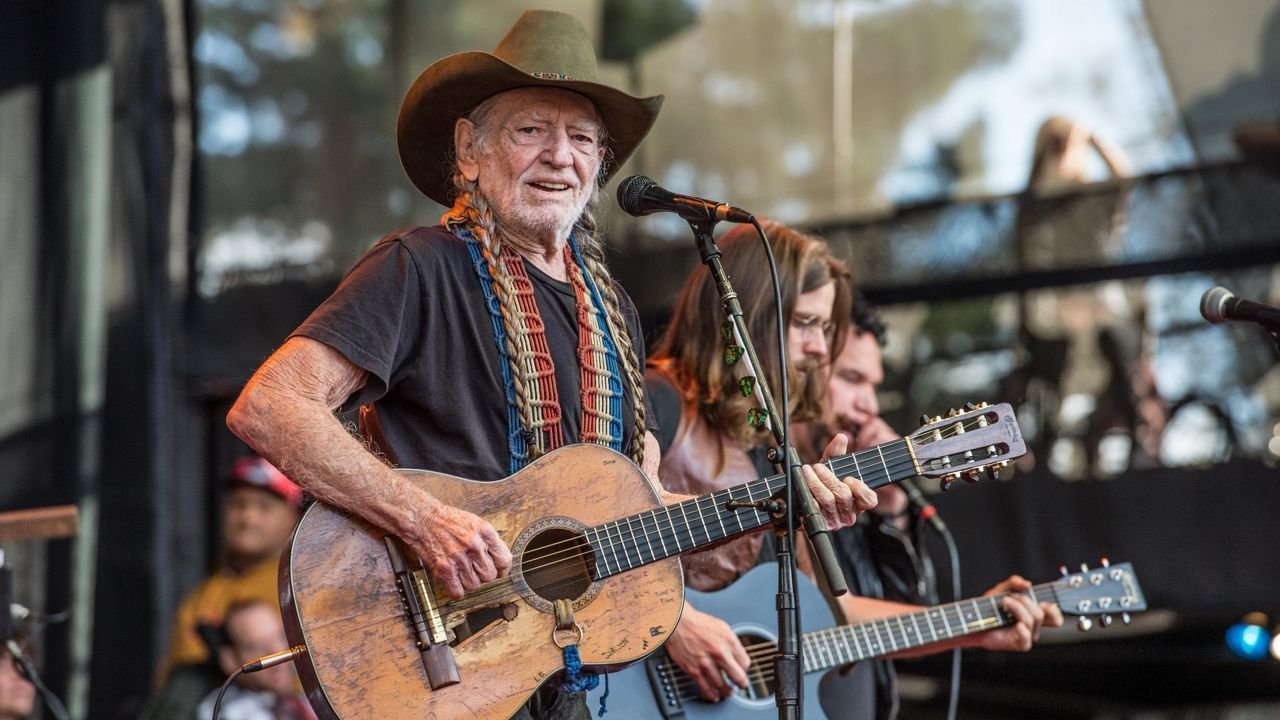In the tapestry of human history, certain individuals stand out not only for their immense talent but for the lasting impact they have had on society. These venerated celebrities have influenced culture, politics, and art, becoming icons whose legacies endure for generations. Whether through their artistic contributions, philanthropic efforts, or their roles in shaping societal change, these figures transcend the boundaries of fame to become cultural legends.
What Defines a Venerated Celebrity?
A venerated celebrity is more than just a famous individual. These are people who are admired, respected, and often celebrated for their contributions to the world. They are figures whose influence extends beyond their craft, touching lives, shaping trends, and often sparking societal changes. From actors and musicians to activists and athletes, their impact is felt deeply across time and borders. While fame can be fleeting, veneration suggests a deeper level of respect and lasting influence, often connected to their achievements, character, and legacy.
The Role of Venerated Celebrities in Society
Venerated celebrities often serve as cultural touchstones. They mirror the values, concerns, and aspirations of society while also pushing the boundaries of what is possible. Through their art, actions, or activism, they often reflect and shape public discourse. When figures like Martin Luther King Jr. or Mahatma Gandhi spoke out, they weren’t just famous individuals; they were leaders inspiring global movements for change. In the arts, figures like Marilyn Monroe or David Bowie became not only cultural icons but representations of shifting societal norms around gender, identity, and freedom of expression.
Influence on Popular Culture
In many cases, these celebrities shape the very fabric of popular culture. Artists like Elvis Presley and Michael Jackson did not just make music; they defined eras. They set trends that reverberated through fashion, music, dance, and even language. Similarly, writers such as J.K. Rowling or directors like Steven Spielberg shaped the collective imagination of generations. Their influence permeates almost every facet of media and culture, making them legends not only in their craft but also in the lives of their fans.
Social and Political Impact
Celebrities who transcend their craft often do so because they step into the social and political arenas. Figures like Muhammad Ali, with his strong stance against the Vietnam War, or Angelina Jolie, through her work with refugees, demonstrate that veneration often comes not only from talent but from a willingness to engage with the pressing issues of the time. By using their platforms to raise awareness or provoke thought, they become champions of causes much larger than themselves.
The Iconic Status of Old Hollywood Stars
Few figures are as universally venerated as the stars of Old Hollywood. The golden era of cinema produced figures whose legacies endure long after their time in the spotlight has passed. Names like Audrey Hepburn, Charlie Chaplin, and Humphrey Bogart are instantly recognizable across the globe.
Audrey Hepburn: A Star Beyond the Screen
Audrey Hepburn is often remembered for her grace, beauty, and iconic film roles, but her legacy extends far beyond Hollywood. As a UNICEF Goodwill Ambassador, she spent her later years tirelessly advocating for children in need, particularly in conflict zones. Her humanitarian work, combined with her on-screen performances in films like Breakfast at Tiffany’s and Roman Holiday, secured her place as a timeless icon of elegance, compassion, and dedication.
Charlie Chaplin: Comedy with Depth
Charlie Chaplin was a master of silent cinema, whose character, the Tramp, remains one of the most beloved figures in film history. Chaplin’s films, including The Great Dictator and Modern Times, often carried profound political and social messages. He used humor to critique the rise of fascism, the struggles of the working class, and the perils of industrialization, cementing his status as a venerated celebrity whose work was both entertaining and socially relevant.
Musicians Who Defined Eras
Music is a universal language, and certain musicians have not only defined their genres but also shaped the very eras in which they lived. These musicians are often remembered not just for their songs but for their ability to tap into the collective consciousness of their time.
Elvis Presley: The King of Rock and Roll
Elvis Presley’s influence on music and culture is almost immeasurable. Known as the King of Rock and Roll, he revolutionized music by blending genres such as blues, country, and gospel. His charisma, voice, and daring performances made him a household name, but his legacy extends far beyond his chart-topping hits. Elvis challenged racial boundaries in a segregated America, and his music became a symbol of youthful rebellion and change in the 1950s and 60s.
Bob Marley: The Voice of Revolution
Bob Marley, the Jamaican singer-songwriter, is revered not only for popularizing reggae music worldwide but also for his messages of peace, love, and social justice. Songs like Redemption Song and No Woman, No Cry are timeless anthems of resilience and hope. Marley’s dedication to Rastafarianism, his advocacy for the rights of the oppressed, and his commitment to political causes like Pan-Africanism have made him a venerated figure not just in music but also in global social movements.
Venerated Celebrities in the World of Sports
Sports figures also hold a unique place in society, and many athletes transcend their sport to become cultural icons. Their physical prowess, determination, and ability to inspire often make them revered figures in their communities and beyond.
Muhammad Ali: More Than a Boxer
Muhammad Ali was not just a champion in the boxing ring; he was a champion for social justice. His refusal to be drafted into the Vietnam War, citing religious and ethical reasons, made him a controversial figure at the time. However, his resilience, both in and out of the ring, made him one of the most respected and venerated athletes in history. Ali’s activism for civil rights and his stance against racial inequality earned him admiration across the globe, and his legacy as a fighter for justice endures to this day.
Serena Williams: Breaking Barriers in Tennis
Serena Williams is not just one of the greatest tennis players of all time; she is also a powerful advocate for gender equality and racial justice. Throughout her career, Williams has broken down barriers in a predominantly white and male-dominated sport, winning 23 Grand Slam singles titles and inspiring a new generation of athletes. Off the court, she uses her platform to speak out against gender discrimination and for greater inclusion in sports, making her one of the most venerated figures in modern athletics.
Venerated Celebrities Who Changed the World Through Activism
Some celebrities achieve veneration not just through their craft or sport but through their unwavering commitment to activism. These individuals have used their fame as a platform to fight for the rights of the marginalized and to bring attention to global injustices.
Nelson Mandela: The Embodiment of Peace and Justice
Though primarily known as a political leader, Nelson Mandela became a venerated celebrity for his life-long struggle against apartheid in South Africa. After spending 27 years in prison, Mandela emerged not with bitterness but with a message of reconciliation, peace, and justice. His leadership in dismantling apartheid and fostering a new, democratic South Africa earned him a Nobel Peace Prize and the admiration of millions around the world.
Malala Yousafzai: A Voice for Education
At just 17 years old, Malala Yousafzai became the youngest-ever Nobel Prize laureate. After surviving an assassination attempt by the Taliban for advocating girls’ education, Malala has become a global symbol of resilience and the fight for women’s rights. Her advocacy for education and equality has earned her veneration across the globe, proving that age is no barrier to making a lasting impact.
Conclusion
Venerated celebrities are not just figures of admiration and talent; they are cultural and social touchstones whose legacies endure through the ages. Whether through the arts, sports, politics, or activism, these individuals leave an indelible mark on society. Their ability to transcend their immediate fame and influence global movements, challenge societal norms, or inspire millions is what sets them apart. Veneration is not about fleeting moments of popularity; it’s about a lifelong legacy of impact and change. As society continues to evolve, new figures will undoubtedly rise to veneration, but the timeless contributions of these celebrities will continue to resonate for generations to come.
FAQs
What makes a celebrity venerated?
A venerated celebrity is admired not just for their talent but for their lasting impact on society, often through activism, leadership, or cultural influence.
Who are some examples of venerated celebrities in history?
Figures such as Audrey Hepburn, Muhammad Ali, Nelson Mandela, and Bob Marley are revered for their contributions to society beyond their respective fields.
Why do celebrities become cultural icons?
Celebrities become cultural icons when their influence transcends their work, shaping societal norms, movements, and popular culture in profound and lasting ways.
How do venerated celebrities impact social and political change?
By using their platform to advocate for causes like civil rights, gender equality, or peace, these celebrities can amplify important social issues and inspire widespread change.
Can athletes become venerated celebrities?
Yes, athletes like Muhammad Ali and Serena Williams have become venerated not only for their sports achievements but for their activism and social contributions.
What role do venerated celebrities play in shaping popular culture?
Venerated celebrities often define the eras in which they live, setting trends in fashion, language, and social attitudes while also influencing the direction of art, music, and media.










